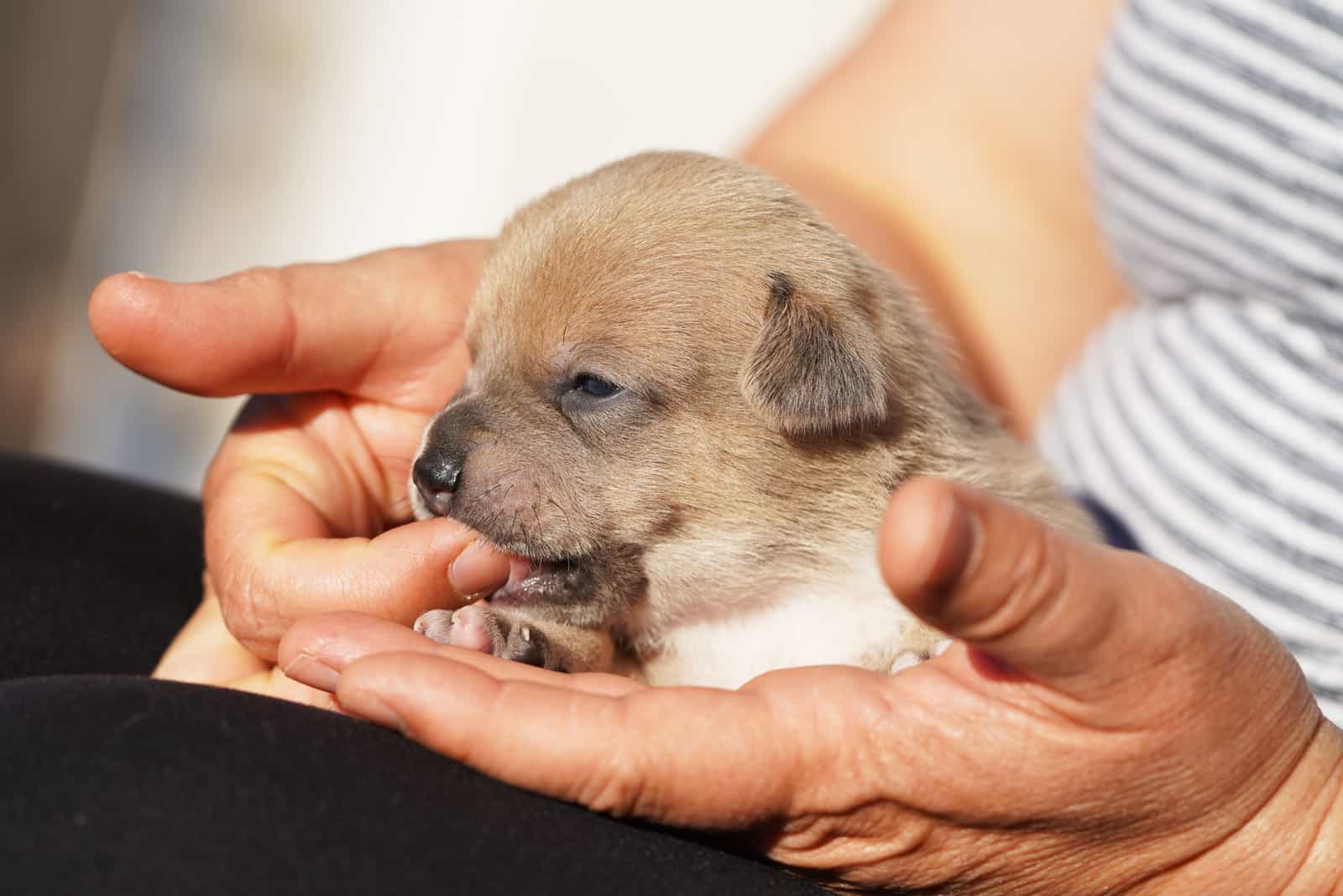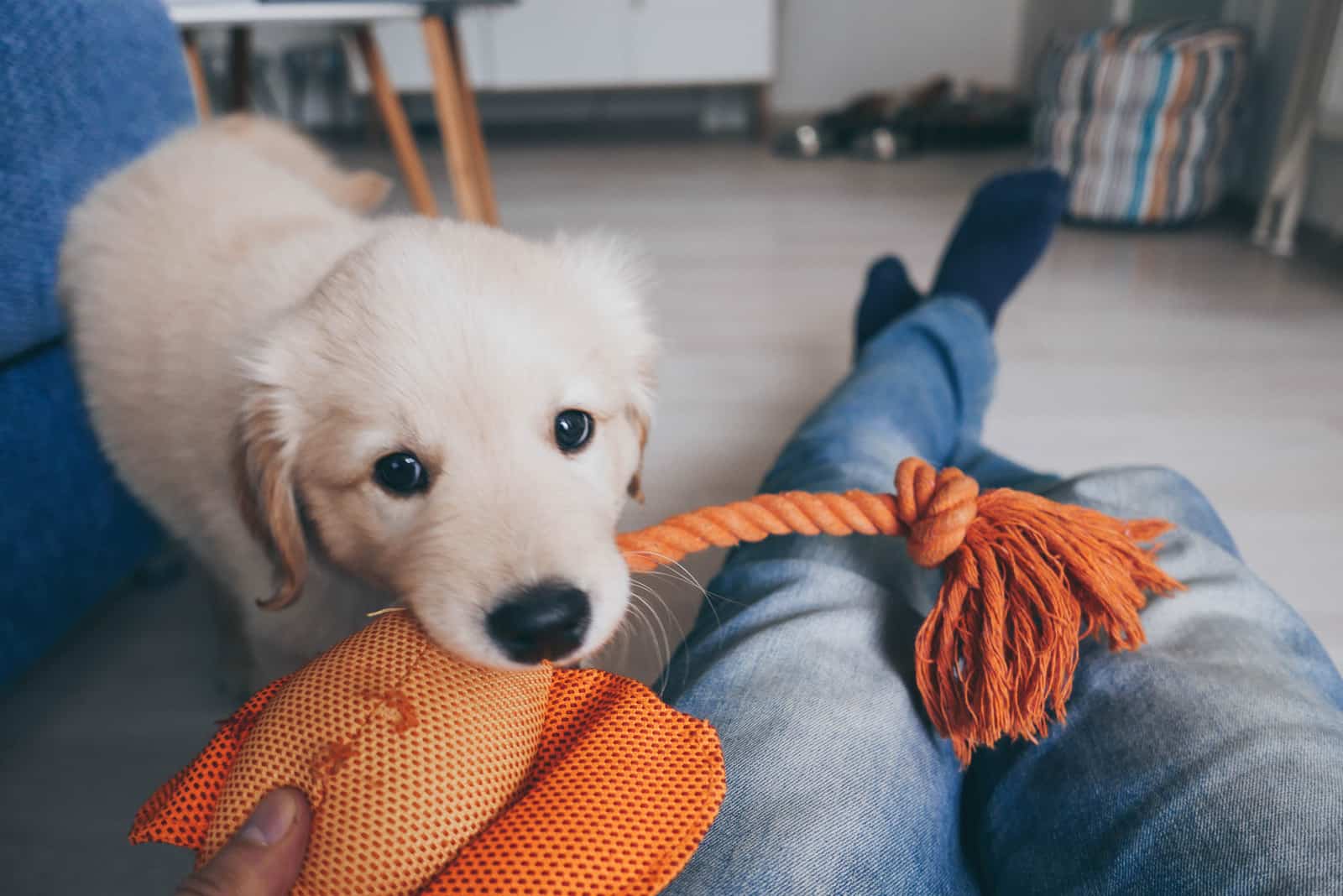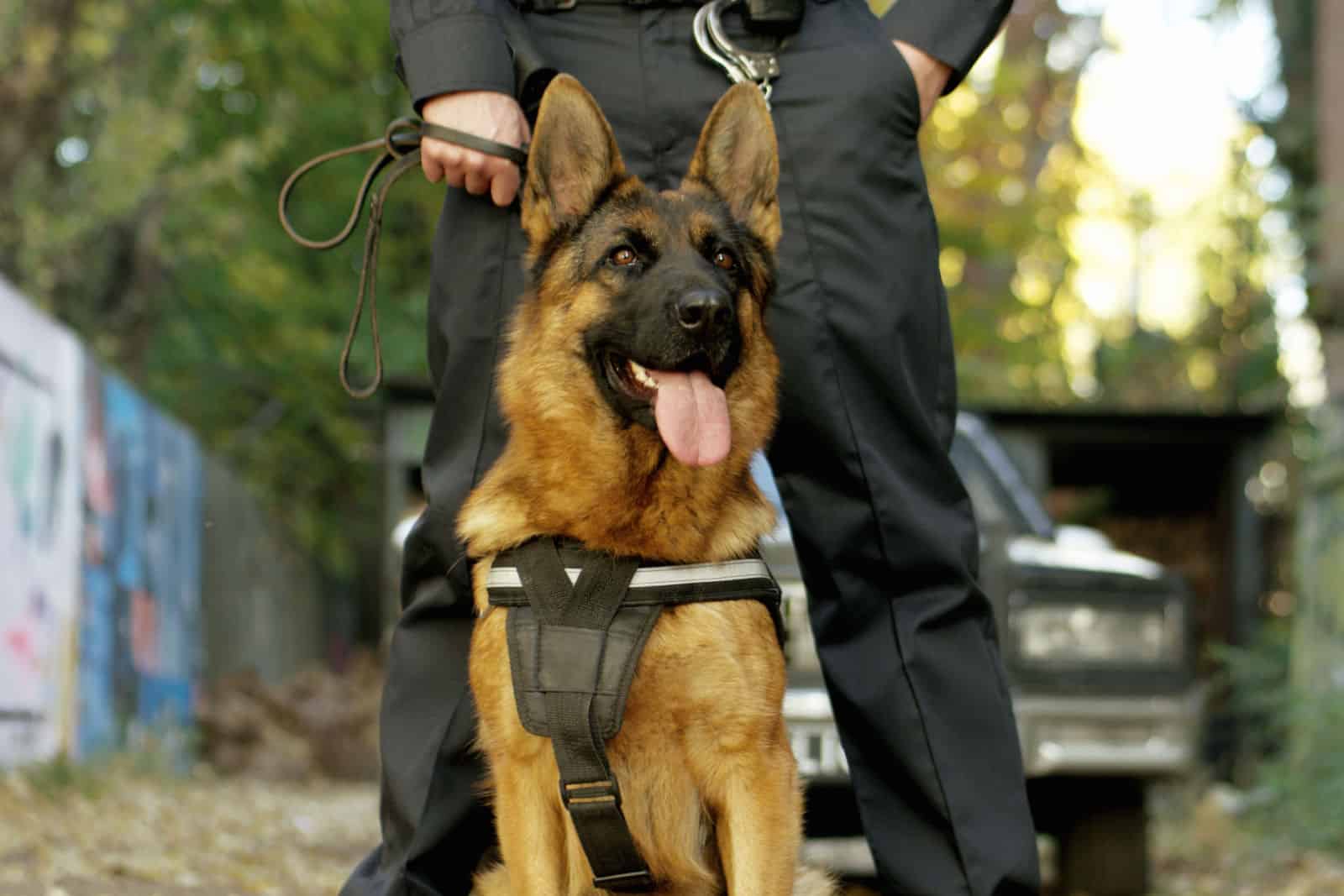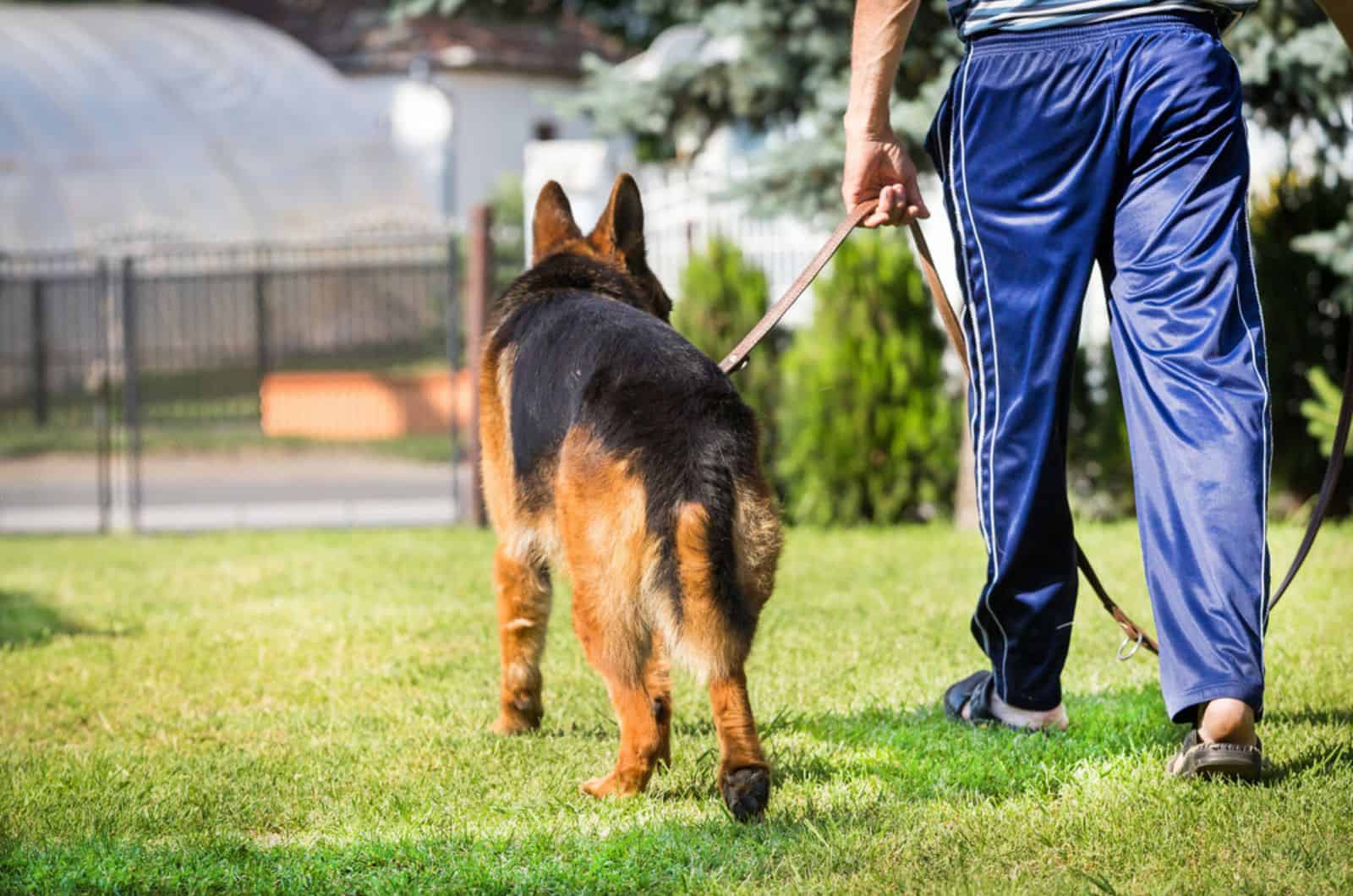While the prospect of becoming a breeder does sound interesting and a great way to foster your love for dogs, it is an expensive hobby to get into, one that requires you to make profit, so the first question on every breeder’s mind becomes “Where can I sell my dog?”.
If you’re one of these people wondering “Where can I sell my dog?”, don’t worry, as there are plenty of options from making your own site to utilizing third party sites like Craigslist or similar.
Popular breeder listing sites are also ones that focus on that specific breed in particular and make it more likely for you to get seen.
Believe me when I say that you have plenty of options with different pros and cons to it all, usually ranging from what kind of budget you’re working with to what kind of dog breed you’ve decided on raising.
Presentation is important too as are the benefits that you as a breeder offer to potential dog owners and how you handle that part of the process.
Naturally, you’ll also want to make sure the pups you raise end up in good homes with loving family members who’ll treat them right.
Of course, this doesn’t have to be about you being a breeder, it could just be that you’ve bit off more than you can chew when you got a dog, and you realized that you can’t take care of him so you’re looking to sell him to someone who can.
In that case you’ll have a few extra options available like various animal shelters and rescue groups or even apps.
Bulletin boards work just as well too, but are a little riskier.
In any case, if you’d like to find out more about what your options are and what needs to be done regardless of your reason for selling your dog or your dogs, be sure to read on.
Where Can I Sell My Dog: 10 Top Methods

1. Puppy Find
Your first option is to use Puppyfind, now known as puppies.com.
It’s a great place to put your dog or dogs up for sale and will allow you to contact buyers with ease to screen them and determine whether they’re the right fit for your precious pooch.
The only hurdle you have to cross initially are the payment fees.
The first one is tied to the ad itself as you have to pay to keep the ad up and can pay to keep it on top of the list.
The second payment is tied to the actual contacts, but is usually included in the cost of the chosen plan.
2. Classified Ads
Whether it’s your local area’s or your state’s website, or just the local newspaper, you can always post an ad in their ‘classifieds’ section about wanting to sell your dog or dogs.
It’s arguably one of the cheapest options and gets good reach.
The only problem ends up being how often the sites get visited and how often they get checked. The newspaper also has a bit of a popularity problem in modern times to where it isn’t really utilized as much as it would’ve been in the early 21st century.
3. Gumtree
This is another option due to using classified ads, albeit one tied to a site that’s relatively popular in the US, Gumtree.
Finding its initial popularity in the UK, but plenty of US users have started using it and it’s free to use, but paying a fee can bump the ads exposure up so more users see it when they start looking.
Overall a pretty decent choice that’s free to post on so it won’t cost you anything but a sliver of your time, and you can easily get into contact with others after the fact, be it online or in person.
4. Hoobly Classifieds

Another decent option for a classified ad is Hoobly. They even have their own category for pets and animals so it’s a bit easier to find the ad in question.
The process is just as easy as Gumtree’s is, you only need to make an account to be able to make your own ad and put it up.
5. Make Your Own Site
My option of choice, albeit only once you’ve gathered a little bit of capital and popularity for your dogs.
While it doesn’t take much to make a website, it does take some investment to make it look good, something a lot of breeders fail to understand.
Believe me, in my line of work I’ve had to visit countless breeder sites and let’s just say that web design is definitely not something they’ve decided to put money into.
A well organized site will attract more potential buyers for your pups and will make them more likely to tell their friends about it, while a poorly managed one will only lead to the opposite result.
Of course, plenty of other things play into that like how popular the breed you’re selling is, your accreditations as well as your pricing and the amount of market saturation from other breeders peddling the same ‘wares’, so to speak.
Overall, if you’re intending to be in this for the long haul, I advise swapping over from posting on other sites and making your own, though, still feel free to advertise on the free options as that’s just free exposure.
Though, if you can, make sure to include a way for those ads to link back to your site, if the sites you’re posting on allow it.
6. Advertising Over Social Media
If there’s anything that’s popular with people of any age group, it’s social media.
While it can be rough to break into the market there, following trends and being persistent will manage to net you some customers and popularity.
As for which of the given options works best, currently Instagram and Facebook are faring well, albeit the latter is taking a bit of a nosedive in current times, so you may want to be wary of that.
The benefit of social media doesn’t come from advertising with static ads alone, but being able to show the litter off through pictures and videos alike, as well as things like Instagram stories, or even utilizing TikTok.
7. The American Kennel Club

Once you’ve gained enough recognition, you’ll want to become an AKC certified breeder.
It’ll further serve in helping you promote yourself as a legitimate breeder compared to all of the puppy mills out there and other breeders with questionable practices.
Certifying each dog comes with a small fee compared to the doggo’s actual selling price, but it serves as a seal of approval to help others know your dogs meet the AKC breed standard.
It also allows you to advertise on the AKC marketplace too, which will further increase your exposure.
That said, there is the downside that not all breeds are supported by the AKC just yet, so if you decide on going a bit too out there with a non-supported breed, this may not end up being an option for you until they are.
You’ll have to carefully balance market saturation versus breed uniqueness to maximize your exposure and level of income.
8. Craigslist
While already mentioned at the start, Craigslist is arguably one of the best and most popular sites for putting anything up for sale, including dogs, at least in the US, albeit it’s usually considered rehoming in this case.
You can advertise for free, which is a great boon since you won’t be competing with people using paid options so you all have a fair chance of being noticed.
That said, given how popular Craigslist is, there are a lot of bad eggs in the batch in terms of potential buyers to be worried about.
I’m sure you’ve heard a Craigslist horror story or two in regards to other purchases, but with dogs, it primarily concerns thieves and puppy flippers, as well as people who are careless and clearly not ready to take care of a pet.
This is why most experienced buyers suggest always meeting with the potential buyer.
You’ll want to meet in public places rather than private areas so they can’t do anything suspicious like trying to take your dog away.
Also, make sure you get the money first before handing the pup over to the buyer as they may end up running off with him regardless.
Screening buyers prior to the purchase is important too, so make sure to ask them some questions that can give you a better handle on the situation.
9. Get Your Pet
Get Your Pet is yet another decent-ish option.
While the setup is standard to most other sites requiring registration and setting up a proper ad for your dog which includes pictures and a set price, it does have some issues, ones that stem from the sellers themselves rather than the buyers.
The site has started getting littered with scam artists seeking to get the buyer’s money with zero intent on selling a dog to them.
Due to this, the site’s reputation has somewhat suffered, but it’s still a choice to be considered for selling your own dogs. You can consider it a last resort type of deal.
10. Next Day Pets
Finally, one of the best websites for selling dogs is Next Day Pets, allowing you to further expand your reach as they only deal with reputable breeders and avoid puppy mills and other questionable practices.
Though posting is free, it is somewhat limiting, with several paid options to further your exposure by putting your ad on top of the searches for the specific breed.
Are There Any Places I Should Avoid Advertising On?
Most definitely. While I don’t know all of them on the internet as there are many, Puppyspot and Premier Pups are some of the more popular sites that are known to be dealing with puppy mills and should thus be avoided.
You don’t want your ‘brand’ to be associated with something of that sort.
I’m sure there are more, just keep an eye out for any bad info about them and avoid them as best you can.
What About The Actual Ad? How Do I Go About Making A Good One?

Well, anyone can make an ad, but very few people can make an ad that sticks out and shows people you’re serious about your business.
It’s better that you belong to the latter group, and I’ll help teach you how.
While an ad may seem simple, there are plenty of factors that go into it which improve its quality. Some help out a ton, while others are mostly quality of life stuff.
Here are some of the most important factors:
A Picture
A picture speaks a thousand words, as the old saying goes, and it’s no different when posting any sort of ad.
A clear image of the product you’re trying to sell, or, in this case, dog, is going to help attract the right kind of customer and boost the ad’s popularity overall as it’s usually the first thing that’ll pop up and catch someone’s attention.
You don’t even need to be a professional photographer to get a good one, just make sure it’s not blurry, and that the dog can be clearly seen, preferably contrasted against some grass on a lawn or something similar.
While pictures around the city and him being surrounded by these gray and brown color palettes can work, they hardly ever make the dog stand out unless he has a drastically different fur color.
And, of course, regardless of whether it’s a litter of puppies or a singular dog, always make sure you get their good side, so to speak.
Have them doing something cute or appealing to the potential buyer and it’ll drastically improve your chances of making a sale.
If younger dogs are in question, and the advertising area allows for multiple pictures, some people also add pictures of parents so the buyer can get a general idea of what his new pupper will look like in a couple of months.
A Good Description
The pictures may be worth a thousand words, but descriptions are the few that matter most, the ones meant to sell the dog to the buyer and you’ll always need one if you’re intending to sell puppies online.
The definition of a good description in this case should tell as much as it can in as few words as possible.
Focus on the key aspects like coat color, the dog’s gender, price, if the dogs have their vaccinations or if they’re registered, if you do pre-emptive dog training be it behavioral or otherwise, if they’re purebred or not, whether they’re intended to be show dogs or not, etc.
For things you don’t have, just omit them as saying something isn’t there is just clogging up valuable space on the ad and may cost you extra in some cases.
Not to mention that potential buyers aren’t looking for a novel.
Another good thing to put in a description, albeit optional, would be the parents of the dog you’re trying to sell and their qualifications.
For instance, whether the mom or the dad have any titles to their name or if they’re from a long line of winners or healthy dogs. This’ll help you justify the set price even further.
One thing that’s extremely appealing to customers is breeders giving out health guarantees for their pups for the first year of ownership.
This helps the buyer put further trust in you and further justifies your claim that your doggos are bred to be healthy.
If something does happen, the buyer doesn’t have to bear the costs of the medical bill and is more inclined to buy from you.
Sure, it puts a bit of a dent into your profits every now and then, but if you breed and raise your pups well, that’ll rarely ever happen.
There’s plenty of detail that can be included though finding the right mix of info that should be included in what order may take some trial and error, but eventually you’ll get to a setup that’ll work best for you.
Don’t Forget The Contact Info
No sale is final without the customer engaging contact with the seller in some way, shape or form.
For ads like these, it’s best to either leave your phone number in, your e-mail address or your businesses’ social media handle.
That way, customers can get in contact with you and you can do the aforementioned screening process to see if said person is a good fit for one of your dogs and whether they’ll be able to treat him right.
What Else Can I Do To Improve The Quality Of The Purchase/Sale Process?

You’ve gotten the ad done and you’ve found your preferred place of advertisement, but is there anything else that can be done?
There sure is. There are a couple of things that’ll help either you or the buyer out by streamlining the process or drumming up excitement for the pups.
Holding An Open House Day
If you’re a breeder and you want to give your customers an idea of how their new dogs might behave, you can always hold some sort of meet and greet or an open house day for them to come over and experience the temperament of your litter.
This gives prospective new owners a good idea of what to expect and usually makes them more likely to purchase a specific one, the one they bond to with the best.
Doing House Visits
In the same vein, and as part of the client screening process, you can also request a house visitation to the potential new dog owner to see whether their home is indeed adequate to house one of your puppies.
Obviously different criteria will apply depending on the breed, but this is a better way of making sure that what the potential buyer is claiming is actually true or not, or whether his idea of adequate meets your standards.
Issuing Puppy Contracts
Dogs are living beings as much as you and I, and you should thus be protected to a degree.
While not mandatory, I guarantee you that you’ll grow attached to the little guys and hearing that they were rehomed to a shelter or a rescue center, or somewhere far less desirable because the owner couldn’t take care of him is going to break your heart.
Mistakes happen, someone you may have judged to be adequate may end up not being up to the task, that’s why a good number of breeders make the buyers sign puppy contracts to return the dog if they end up not being able to take care of him.
While it may seem like it’s against the buyer, it doesn’t really punish them in any way, but instead gives them an extra option, albeit a mandatory one, on where to return the dog to.
After all, he’ll be safest back in your care if they can’t take care of him.
You can also include the extra incentive of doing so by offering full or partial refunds, though I recommend going with the latter as you don’t want them mishandling the dog for free.
Putting Up An Application Process

This one is mostly for all of you who’ve put up a website as it’s easiest to implement there without the hassle of using third party options or mentioning it after the buyer contacts you.
Applications serve as a middleman of sorts to help you go through more potential customers quicker and to get a general idea of what kind of person they are and of what standing.
It also helps comb out any undesirable options like people who are only looking to buy pups to flip their price out there on the market for a quick buck or people who’d only waste your time with questions without buying anything in the end.
The questions that go in the application would be the ones you’d normally ask during a live interview or over email.
This means that things like household income, living conditions and family structure are all relevant and necessary questions as would any vet references of previous dog ownership.
After all, if someone’s barely scraping by or has three or more kids and another dog to take care of already while living in a rented apartment, they certainly won’t have room to house a big dog like a Pit Bull or a Labrador Retriever.
You want to look for dog lovers living in stable households, preferably homeowners who won’t risk losing their residence over a month of unpaid rent and who seem to have enough free time to commit to the pup and give him a good life.
Announcing Upcoming Litters And Taking Reservations
Once you’ve gotten popular enough, you can even start doing this to drum up a little bit of excitement and offer a level of exclusivity for early buyers.
It’s an age-old marketing trick where they use FOMO to nudge buyers toward making a decision where they’d normally still be mulling it over.
It can be a double-edged sword for the pup’s sake, but that’s why you put all of the other safeties and precautionary measures in first to ensure they don’t end up going to a home that can’t take them in.
That said, you’ll need to know the exact appearance and the gender of each dog before doing so so buyers can have a good idea on what they’re getting into.
Of course, you’re not here to make them pay the full price right away before they even get their hands on the pup, especially considering they’ll have to wait at least 8 weeks before they’re up for sale.
No, what you do here is ask for a deposit of the intended purchase price to reserve the buyer’s slot.
How much the amount is depends on which state you’re in, so make sure to check with your local lawmaker what the amount you can ask for a deposit is.
The average usually tends to be somewhere around $300-$400 but it varies from state to state.
Finalizing The Deal

With all of that, you’ve finally gotten to your potential buyer and have sorted everything out with them, the only thing that remains to figure out now is how you’ll hand the dog over.
Whether the new owner in question would be coming over to pick the dog up themselves or if you’ve included a shipping fee in the purchase where you’ll take care of the delivery directly to the owner’s home yourself.
All of this needs to be ironed out prior to the purchase.
Depending on distance, buyers may want to opt for one or the other, and it’s better to give them the option to do so so as to not incur any extra charges on them that they don’t want to have.
It’ll lead to a bad taste in their mouth otherwise and may lead to you losing a few subscribers on your social media accounts or an overall rating drop in rare cases.
Being allowed to pick the dog up themselves offers them a choice that is ultimately less hassle for you too as you won’t have to plan the shipping yourself.
Sure, you lose out on shipping fees, but most of those go toward the actual service.
Other than shipping, make sure to inform the new owner on what puppy dog food brand you’ve been feeding the pup and secure them with at least a bag so they can continue using the same exact one.
The extra bag will tide them over for a bit until they secure a steady supply of food on their own and it, once again, won’t inconvenience you too much.
It’s a necessity as dogs are often picky about what they eat and may not end up eating whatever new thing they’re given at their new home.
Are There Any Bad Sides To Selling Dogs Online?
As with anything else, there’s always some bad to go with the good, and there’s plenty of bad to be wary of when you sell dogs online.
Not Getting To Interview Potential Buyers
This one is mostly related to sites who don’t offer this option in the first place and who want to cement the deal right then and there when the transaction is made.
And there are many of them out there who do this, so when you go out there to advertise about wanting to sell your dog online, be sure to read the fine print of what you can and can’t do, and if this is one of the clauses, leave immediately.
You want to give your dog over to a good home rather than a questionable one where you can only trust the buyer’s word for it, and there are plenty of options out there to do that with.
The Types Of People You’ll Encounter Greatly Vary In Quality
Even if you get to interview and screen the buyers, you’ll still encounter a whole spectrum of them, from perfect picks to the most deplorable of the bunch.
You’ll want to know how to pick the bad seeds out and avoid them.
Here are some of the examples of bad people that you’ll encounter on your selling journey:
1. First Time Dog Owners

While they’re the least bad of the bunch as they don’t have any ill intent with the dog that you’re selling, they’re often overly eager and don’t consider everything that goes into taking care of a dog.
They end up being overconfident in their ability to handle a pooch and often end up having to either return the dog or send it off to an animal shelter or rescue.
The ones who can’t be bothered by that end up simply mistreating the dog without even realizing it.
For these types of people, you’ll want to explain to them everything that needs to be handled in regards to owning a dog: the vet check-ups, the vaccinations, the routine deworming, the annual costs that go into dog food, the price of dog gear and the like.
This may still not deter them, so ask them about their living arrangements and whether or not they have adequate space to house such a dog, even insisting on a home visit is sometimes necessary.
Be thorough. It may seem like you’re being too pushy, but remember that this is for the sake of the dog.
They’re not a commodity to be traded around like bags of sugar but living beings who need constant care and attention, and take a certain degree of responsibility to do so. They’re not for everyone.
If everything still checks out in the end and seems acceptable, then feel free to proceed with the transaction. There’s no need to deter a potential new dog enthusiast over one or two minor details if everything isn’t completely perfect.
2. Trolls, Ghosters And The Like
Going down the scales, we enter the muck, the type of person that you’re likely to encounter here already hedging into the annoying territory, and in this case, they’re the people who waste your time.
Frequently, you’ll encounter people who just found your contact info on the add to prank call you or to ask nonsensical questions about the dog, only to hang up on you or end contact entirely, the trolls which are rampant throughout the internet.
Other times, you’ll find people who do seem genuinely interested in owning a dog and will ask you the relevant questions, but will, for no reason, suddenly stop all communication and ghost you.
Ghosters are common in all online practices given the anonymity provided by the service and the lack of repercussions therein.
However, don’t get too discouraged if this does happen, it’s par for the course and for every juvenile contact you encounter, you’re bound to get an equal amount of serious buyers. Just be patient and ignore these people and shove them in your spam folder.
Having an application process helps eliminate these types of people out too as they often don’t want to go through all the trouble just for the sake of a prank.
3. Flippers
Arguably the worst kind of person that’d seem approachable at first glance are dog flippers.
While the moniker may sound cute, in truth they’re people who buy dogs for cheap prices and then flip them quickly for a profit to someone else.
Sometimes, these folks are hard to discern from actual buyers, but they do have their tells.
Namely, if the person in question doesn’t ask too many questions about the dog itself and just wants to get the deal done quickly. It’s normally a clear sign that they don’t particularly care about the dog itself and just see a big sack of money in his place.
Another good tell is when you have a wider selection of dogs of all ages, but they only want the younger ones as they’re more likely to fetch higher prices.
Regular dog owners will, at the very least, consider the older dogs as they’ve been trained already and don’t need as much attention devoted to them as pups would.
You’ll also find that they’re the most likely type to refuse your request for a home visitation for one reason or another, be it current renovation, or being too private about their lives to allow it over something like buying a pup.
Finally, when they seem real adamant about trying to wear you down to agreeing to a lower price by trying to nitpick senseless things here and there just to increase their profit margins. It shows they care more about the money than the ‘product’.
You’ll see a lot of other excuses outside of trying to point out flaws in the dog like how they’re in a great need for a service animal, or how it’d be a great gift for their niece or nephew for their birthday, but they simply can’t afford your ‘egregious prices’.
They may also protest any rehoming fees and try to cheap you out on those too.
Not only does this already fall under the category of someone who clearly wouldn’t have the financial stability to take care of one if it were true, but it makes it clear they’re grasping at straws by trying to go for your sense of empathy to cave to their demands.
If you ever see anything pointing to such behavior or anything else that may seem suspicious, simply walk away and cancel the deal outright.
There are plenty of other, actual buyers who’d love to raise and have a dog around their household who aren’t just doing it for the money.
In Conclusion

When asking the question of “Where can I sell my dog?”, we’ve managed to find a lot of potential options to do so.
While they were mostly focused on breeders trying to sell multiple, know that most of these tactics apply to you too if you’re a dog owner who simply can’t take care of his furry friend anymore for one reason or another.
Just be sure to be professional about the whole thing and to stay away from scammers and other problematic people and you’re sure to find your dog a new, loving home to look forward to, and, if allowed, be sure to visit him when you can. Until next time.
RELATED LINKS:
- Are Mini Hippo Dog Breeders As Common As Hen’s Teeth?
- Top 8 Trustworthy Bernedoodle Breeders In Illinois
- Shetland Sheepdog Breeders: Shelties Looking For A Shelter
- These 8 English Springer Spaniel Breeders Have A Puppy For You
- 6 Sproodle Breeders With Puppies You’re Gonna Love
- 7 Best Borzoi Breeders In The US
- 10 Best Pudelpointer Breeders In The United States
- 8 Creditable Coton De Tulear Breeders Across The States
- 3 Japanese Spitz Breeders In The U.S.: Rare And Precious
- 5 Best Redbone Coonhound Breeders In The US















